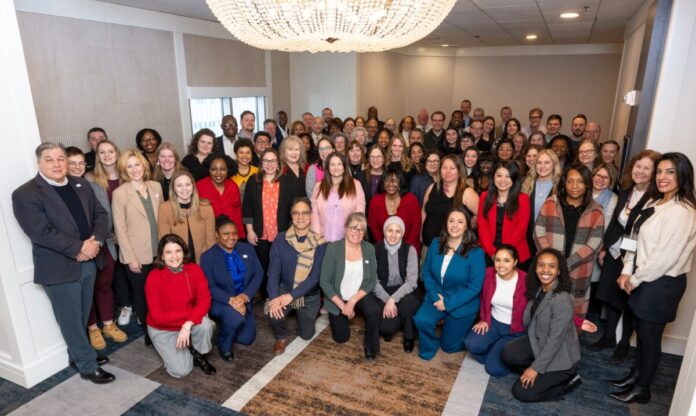The University of Minnesota’s Humphrey School of Public Affairs recently welcomed 24 young African leaders for the Mandela Washington Fellowship — a program under the Young African Leaders Initiative (YALI). This six-week program helps young professionals from across Africa strengthen their skills in leadership, public service, and community engagement.
The fellows, who came from 19 African countries, spent their time attending lectures, meeting local leaders, and learning about American culture and values.
Alfred Makotsi, a youth advocate from the Kakamega County Youth Network in Kenya, said the experience was life-changing. He appreciated the chance to connect with young leaders doing impactful work across the continent.
“This program has been very powerful for all of us,” Makotsi said. “Meeting 19 nationalities of young leaders who are doing amazing work back home is something truly special.”
Since the program began in 2014, the Mandela Washington Fellowship has supported over 7,200 young people from every country in Sub-Saharan Africa. Participants are typically between 25 and 35 years old and are active in fields like business, government, and community work.
During their time in Minnesota, fellows took part in various activities. These included lectures from university professors and professionals, visits to local organizations, and community outreach programs. Makotsi said these activities helped him understand how Americans live and what values they hold dear.
“You interact with the community and learn about the culture here—what people believe in, how they live, and what matters to them,” he added.
Another fellow, Bruce Moyo, who serves as a city council member in Bulawayo, Zimbabwe, said the program helped him think about ways to improve governance in Africa.
“It helped us reshape our ideas for how to move Africa forward,” Moyo said.
Moyo also said the fellowship gave him the chance to network with people who are working on similar goals across the continent. For him, the program strengthened ideas around using diplomacy and collaboration between African nations and the United States.
“It gave us space to reflect and share ideas about governance and political challenges in Africa,” he added.
Beyond learning about leadership, Makotsi also used the experience to observe some of the challenges facing young people in the U.S. In an article he wrote, he talked about how many youth in the Twin Cities struggle with issues like drug use, mental health, and violence — problems that are also common in many African communities.
“This reminded me that the struggles of young people are not limited by geography,” Makotsi said.
For Suleiman Oshioke Abdulahi, a graduate economics student from Nigeria, the program offered a powerful opportunity to connect with both the African and African American communities in Minnesota.
“I had the chance to meet with the African American community, who are making a big impact here,” Abdulahi said. “The experience gave me a deeper understanding of American culture.”
Abdulahi said the fellowship also changed how he views education and global opportunities. It opened his mind to future possibilities and gave him the chance to work with people who share his passion for making a difference.
“This fellowship reminded me that education is still a gateway to global opportunities,” he said. “It allowed me to meet leaders from across Africa and the U.S. who are working to make the world better.”


